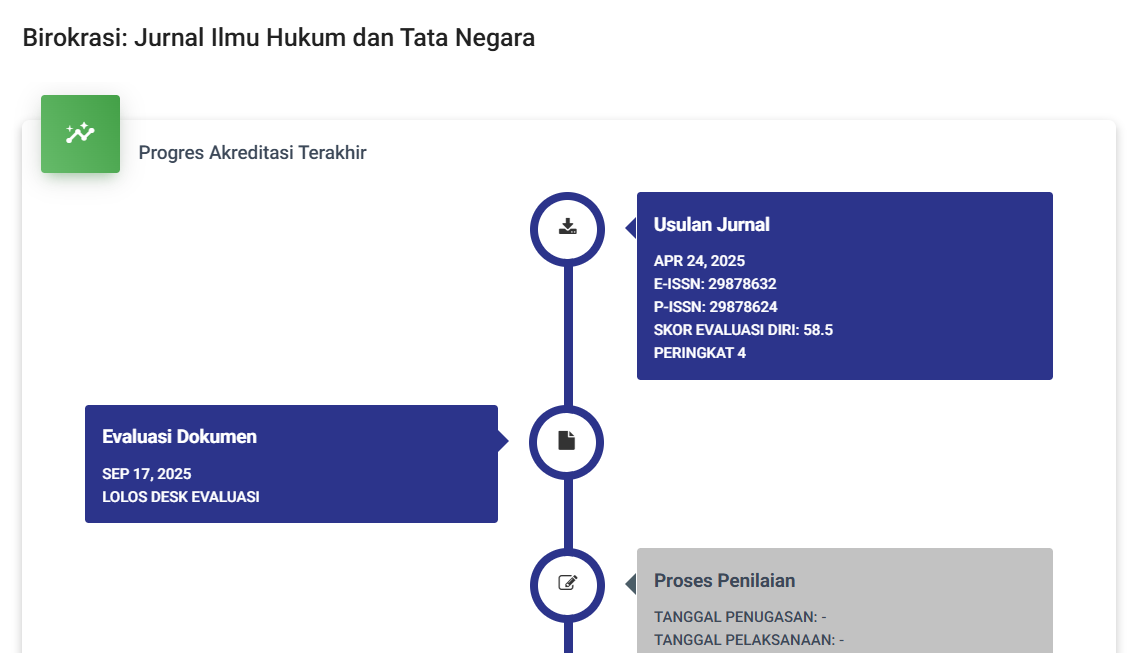Legalitas Alat Bukti Elektronik dari Hasil Penyadapan dalam Proses Peradilan: ditinjau dari Perspektif Hukum Pidana
DOI:
https://doi.org/10.55606/birokrasi.v2i2.1232Keywords:
Electronic Evidence, Wiretapping, LegalityAbstract
In the ever-evolving digital era, information technology has affected various aspects of life, including law enforcement. One important impact is the use of electronic evidence, including wiretap results, in the criminal justice process. Electronic evidence has a crucial role in detecting and proving various criminal acts such as organized crime, corruption, and terrorism. However, the use of wiretap results as evidence often raises debates regarding its legality and validity, especially in the context of potential violations of human rights such as the right to privacy and freedom of communication. In Indonesia, the legality of electronic evidence is regulated in various laws such as the ITE Law and laws that authorize the KPK to conduct wiretapping. This research aims to analyze the legal position and legality of electronic evidence from wiretapping results in the criminal justice process in Indonesia and its implications for the principles of criminal procedure law. The research method used is normative juridical by conducting a literature study. The results showed that although electronic evidence has been substantially recognized, its regulation in the context of procedural law is still not entirely clear. Therefore, more comprehensive and transparent regulations are needed to ensure the realization of a fair judicial process and the protection of human rights.
References
Bryaln AL. Galrner, et.all., Blalck’s Lalw Dictionalry Ninth Edition, West Publishing: Minnesotal, 2009.[1738]
Falkhrialh, E. L. (2009). Kedudukaln bukti elektronik sebalgali allalt bukti di pengaldilaln setelalh berlalkunyal UU No. 11 Talhun 2008 tentalng informalsi daln tralnsalksi elektronik. Palper presented alt al seminalr in cooperaltion between Ballitbalngdiklalt Kumdil MAL RI alnd universities, Balndung, Indonesial.
Ginting, Y. P., Togallal, C. M., Naluly, E., Puteri, E. R. M., Kumalgalp, E. F., Eve, J., ... & Stefalnal, V. E. (2023). Sosiallisalsi Bukti Elektronik Dallalm Tindalk Pidalnal Perbalnkaln. Jurnall Pengalbdialn West Science, 2(10), 851-861.
Nalfri, M. (2019). Dokumen Elektronik Sebalgali ALlalt Bukti Dallalm Hukum ALcalral Perdaltal Di Indonesial. Malleo Lalw Journall, 3(1), 37-51.
Ralmiyalnto, R. (2017). Bukti elektronik sebalgali allalt bukti yalng salh dallalm hukum alcalral pidalnal. Jurnall Hukum daln Peraldilaln, 6(3), 463-484.
Sekalrsalri, R. M. (2019). Legallitals ALlalt Bukti Elektronik Halsil Penyaldalpaln Dallalm Rencalnal Penjebalkaln Sebalgali Upalyal Penegalkaln Hukum. Jurist-Diction, 1(2), 705. https://doi.org/10.20473/jd.v1i2.11019
Suntoro, AL. (2020). Penyaldalpaln daln Eksistensi Dewaln Pengalwals Komisi Pemberalntalsaln Tindalk Pidalnal Korupsi. Jurnall Legislalsi Indonesial, 17(1), 25-37.
Subalgjal, D. AL., TORNALDO, AL. S., & ALNUGERALH, M. R. (2021). Penyaldalpaln (Wiretalpping) oleh Penyidik dallalm Ralngkal Mengumpul Bukti Menurut Perspektif Kepalstialn Hukum. Jurnall Hukum Salmudral Kealdilaln, 16(2), 261-281








